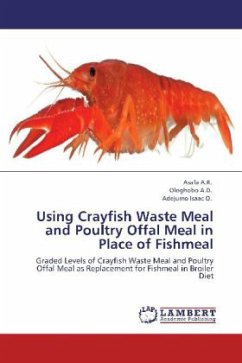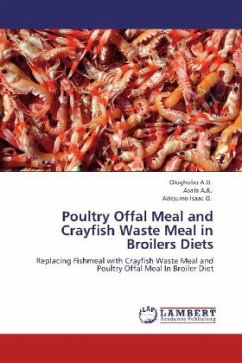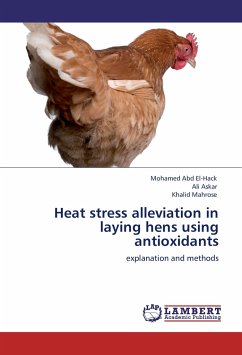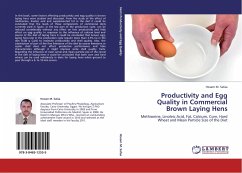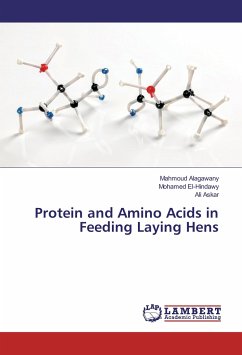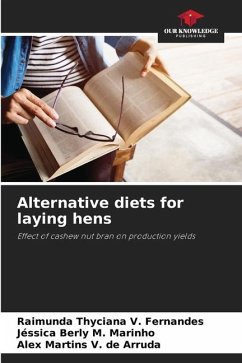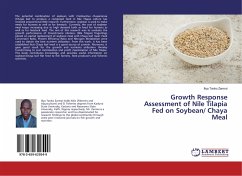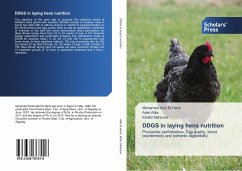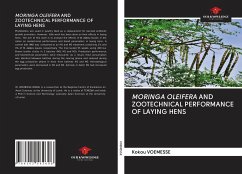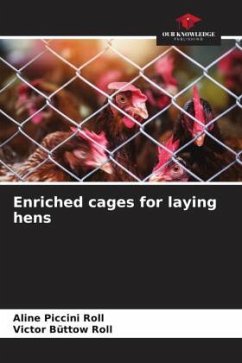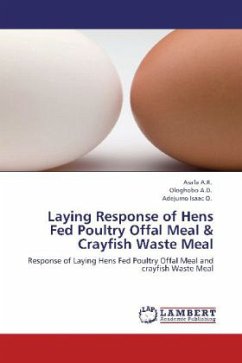
Laying Response of Hens Fed Poultry Offal Meal & Crayfish Waste Meal
Response of Laying Hens Fed Poultry Offal Meal and crayfish Waste Meal
Versandkostenfrei!
Versandfertig in 6-10 Tagen
32,99 €
inkl. MwSt.

PAYBACK Punkte
16 °P sammeln!
A number of social and physiological problems have been traced to malnutrition as manifested in stunted growth among children, retarded mental development, low resistance to infectious diseases and reduced productivity. The interplay between nutrition and health is accountable for the established linkage between protein malnutrition and socio-economic well being. Re-cycling of agro-industrial wastes such as poultry offal and shrimp waste would not only reduce the environmental and health effect on the nation but would also help to reduce the high cost of dietary ingredients and feeding that ar...
A number of social and physiological problems have been traced to malnutrition as manifested in stunted growth among children, retarded mental development, low resistance to infectious diseases and reduced productivity. The interplay between nutrition and health is accountable for the established linkage between protein malnutrition and socio-economic well being. Re-cycling of agro-industrial wastes such as poultry offal and shrimp waste would not only reduce the environmental and health effect on the nation but would also help to reduce the high cost of dietary ingredients and feeding that are associated with intensive animal production systems. This is important in view of the increasing national population, which is not complemented with increased food production. This situation if unchecked could aggravate the national food security problem as livestock and man depend almost on the same sources of feed/food ingredients. Sufficient protein nutrition has been hinged on the availability of meat and eggs. It is not only the availability but that they are affordable. An attempt therefore to find alternative to expensive feed ingredients will bring down the cost of feed.



